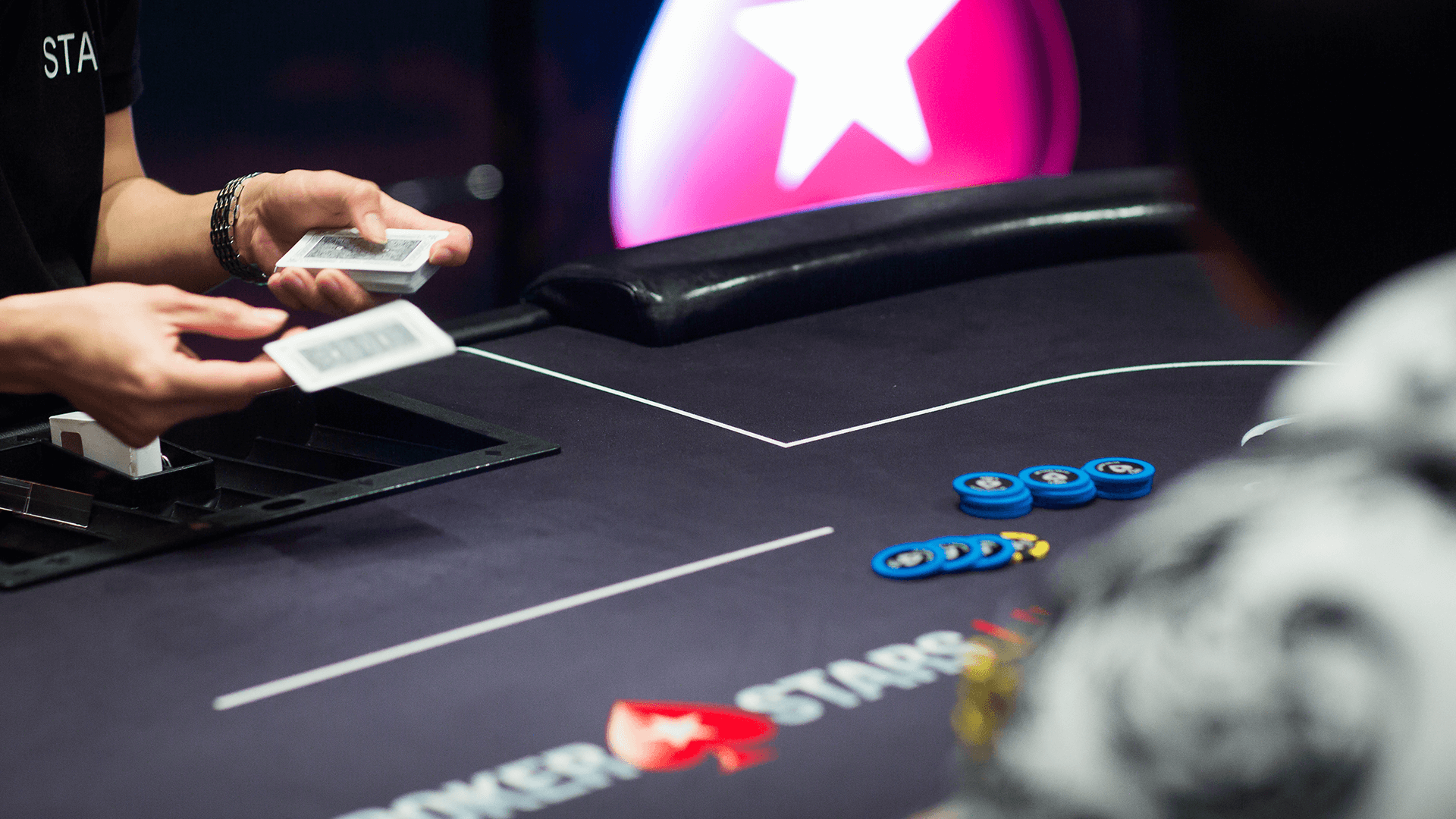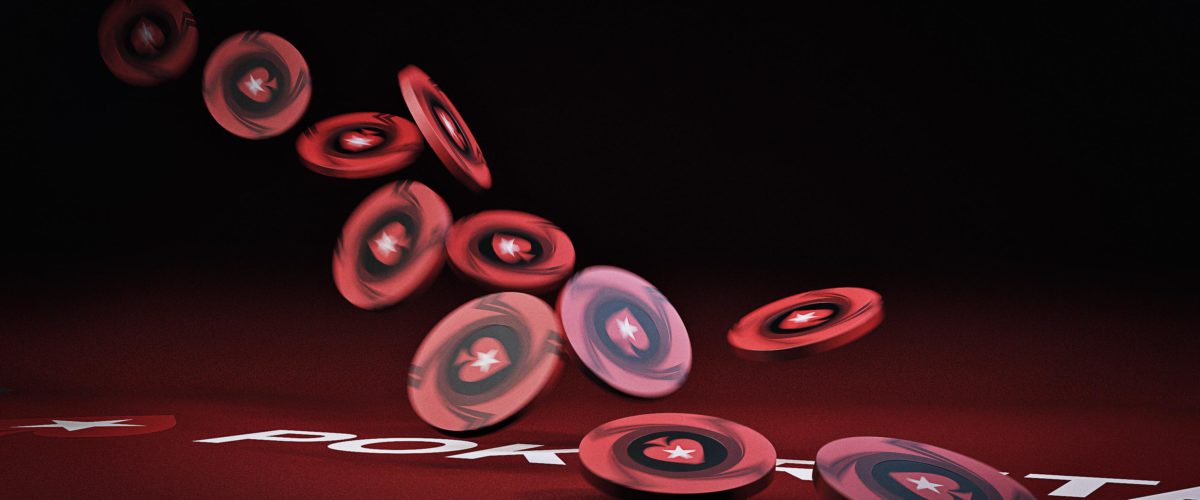Starting Hands in Pot Limit Omaha (PLO)
In Omaha, we naturally have more chances to make a hand on the flop than in Texas Hold’em. Our four hole cards give us many more potential hands, and so there are many more types of possible starting hands in Omaha. The strength of our hand is the mixture of the four hole cards.
There’s more: two good playable starting hands in Texas Hold’em don’t usually make even a decent combination in Omaha (eg. You can play A♠ Q♥ and 4♣ 4♦ separately in Texas Hold’em, but playing A♠ Q♥ 4♣ 4♦ in Omaha is not a good idea). Let’s have a look at some different types of starting hands in PLO.

Starting hands
Let’s begin with the starting hands:
A♦ A♥ K♦ K♥ , A♠ A♦ J♠ 10♦ and similar:
Any hands featuring any pair of Aces with two broadway cards (Ten to King), are the best hands in PLO. You should raise and reraise with these hands and, if it is possible, go all-in before the flop. These types of hands don’t need too much help to win and have good chances against a hand with multiple opponents.
K♣ K♥ Q♣ J♠ , J♥ J♣ Q♦ K♣ and similar:
High pairs (TT-KK) with consecutive cards are also really strong and they do well in heads-up. When we play these kinds of hands against several opponents we should open raise from any position. However, since it is fairly common to find at least one player with Aces in PLO, we shouldn’t push these hands too aggressively before the flop.
8♥ 8♦ 7♦ 6♥ , 7♣ 7♠ 8♣ 9♥ and similar:
Middle pairs with consecutive cards are especially strong in multiway pots, as they get their value from coordinated draws or made hands on the flop. They are speculative hands, but when you hit your set and straight draw you may have some clients to earn some money. You should limp in with these hands. Calling a raise can also be right, mainly with other potential callers behind.
A♥ K♥ Q♣ J♠ , K♥ Q♥ J♠ 10♣ and similar:
These hands are strong, but they are easily dominated before the flop, especially by high pairs. In early position you should play these hands carefully. In late position you can call a raise or even raise the pot.
7♥ 8♥ 9♣ 10♠ , 7♣ 9♥ 10♣ J♥ and similar:
Medium and consecutive cards are quite strong and they are playable from any position. You should play them as draws most of the times. However, sometimes it is good to play these hands like Aces and raise, in order to be more difficult to read.
4♣ 5♦ 5♣ 6♠ , 3♣ 3♦ 4♥ 5♠ and similar:
Low pairs with consecutive cards work well from late positions. These hands are profitable quite often, mainly when we hit a low straight (A-2-3-4-5).
3♥ 4♣ 5♣ 6♥ , 4♥ 5♠ 7♣ 8♥ and similar:
Low consecutive cards should be treated like medium cards. But, considering many of your potential hands are the lowest possible straight, you must play them prudently in early position and not too optimisticly in late position.
A♥ K♠ 10♣ 4♥ , K♣ Q♥ J♣ 6♦ and similar:
In these hands one of the cards doesn’t match with the others (this card is known as a “dangler”). This kind of hand should be played only in small pots and late position. Folding this type of hand is not a mistake. Why would you play with only three coordinated cards against players who have four? That is an unnecessary disadvantage we can easily avoid.
A♥ A♠ 7♦ 3♣ , Q♥ Q♦ 9♣ 2♥ and similar:
These hands justify their value if we hit the top set, but we should be careful about these hands before the flop. We need to look at the Aces in a much different way than we do in Texas Hold’em: in Omaha, while Aces may be a favorite against any individual hand pre-flop, it is unlikely that you can win a large pot without improving those Aces to a set or a full house. These hands can become the biggest danger hands for beginning players and should be treated with caution.
Q♥ Q♦ Q♣ 3♥ , A♥ 10♥ 7♥ 2♥ and similar:
Having trips in our starting hand is a huge disadvantage since we are forced to play with exactly 2 hole cards and here the third card is a vital out to our potential set. The cards listed in no particular order are not too useful either. The hand will be even worth less if is single suited, as we are losing two important outs for a flush. Fold these hands without a second thought.
10♠ 10♥ 10♦ 10♣ :
Having quads is extremely rare and even if it looks good, these hands have zero value to make a hand. We could hope that the board revolves around our quads (here, around the ten: 8-9-J-Q-K) letting us to make a bluff. No one can have another ten. Yet, staying in the hand for so long costs us money and if we get called, we will lose even more chips.
The double suited hands are better in Omaha. Therefore, A♠ A♦ 7♦ 8♠ is substantially better than A♣ A♥ 7♦ 8♠ . In a battle between those hands, the second one would have no chance of winning. Additionally, the first hand will make a flush in 14% of cases. In the rest of the cases they will split the pot.
Also, J♥ 10♣ 9♥ 8♣ is favored against A♠ A♦ 5♥ 6♣ , since it is double suited. Hands with two suited cards are better than rainbow hands.
Three suited cards decrease value to the hand (eg. A♥ 10♥ 8♥ 3♥ ), since we can use only two of them at the showdown.
In summary, we must keep in mind that a good starting hand selection in Omaha is more important than in Texas Hold’em. This is mainly because our opponents have a lot of chances to get a strong hand on the flop. So, to win we need to have some value at the showdown. Even the second best hand frequently loses on the river in PLO (eg. King high flush).

